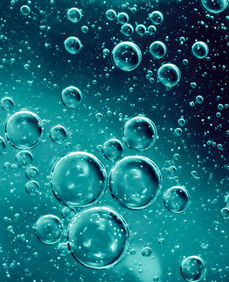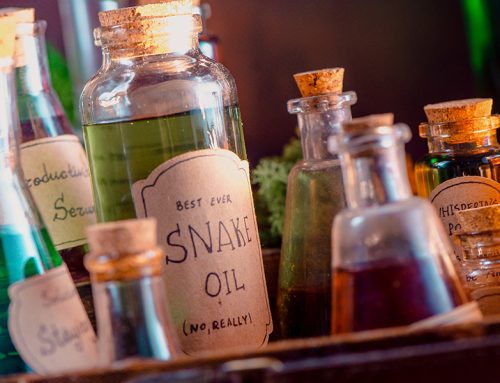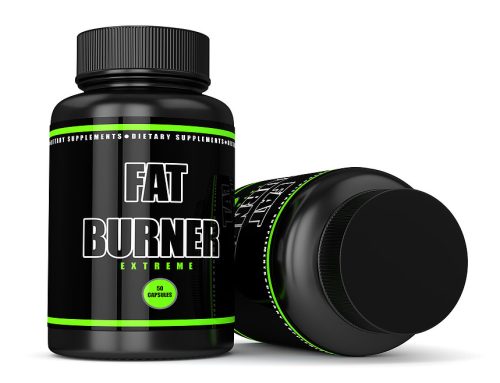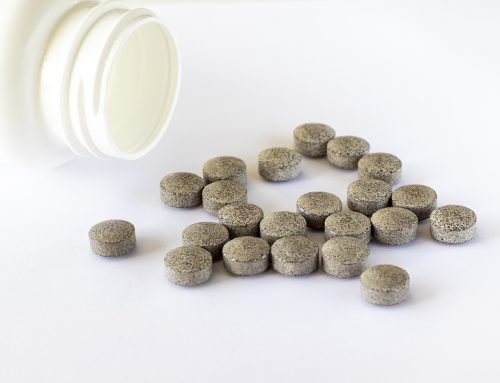I almost spit out my high protein oatmeal pancake all over my Macbook this morning when I saw this! I was reading my email, eating breakfast, when I came across this message from a Burn the Fat reader who wrote, “Hey Tom, Have you heard of Fat Water? I’m serious! This actually exists! I’d love to hear what you think of it.”
 I had never heard of it before, but sure enough, a quick Googling lead me to several articles including the one at the top of Google search by Time Magazine which said, “Fat Water Is Now A Thing.”
I had never heard of it before, but sure enough, a quick Googling lead me to several articles including the one at the top of Google search by Time Magazine which said, “Fat Water Is Now A Thing.”
I usually pay no attention to this kind of stuff because diet and weight loss trends come and go every week, it seems.
This one made me stop a moment and look because I saw that the main ingredient in this Fat Water is something I’ve researched in the past, plus that ingredient has been around the bodybuilding world since the 1990’s.
What is Fat Water?
Fat Water is a unique type of oil mixed with water and some flavoring. It retails for $3.95 a bottle, contains 20 calories, 2 grams of fat, and no sugar.
Apparently the company wants to throw their hat in the ring with other energy drinks and with health products such as coconut water. Many energy drinks are promoted as healthy, but may not be so healthy after all if they contain a high sugar content (and or over-the-top amounts of stimulants). Fat water is pitched as an alternative.
This new entry to the health and energy drink market is riding on the heels of the popular coconut oil craze and the butter in your coffee for breakfast fad. Yes, fat is now in style again.
It not only looks like more and more people are leaving fat phobia behind, enjoying their whole eggs, nuts, seeds, olive oil, coconut oil and avocados with unprecedented frequency, it appears that now special types of fats continue to pop up and get pitched as healthy (or fat-burning).
They don’t appear to be selling fat water to promote weight loss, and good thing too, because that claim might be frowned on by the Federal Trade Commission. It looks like they’re promoting fat water as a new type of energy and hydration drink.
Interesting enough, if it’s not insinuated somewhere that fat water burns fat, I’m guessing that the makers are hoping it will be perceived that way, because the type of oil in Fat Water is a Medium Chain Triglyceride (MCT) derived from coconut oil.
It just so happens that I studied the research on MCT oil at length years ago, and reviewed it in detail for my Burn the Fat Inner Circle members. Believe it or not, research shows that MCT oil does have thermogenic properties. Some people call it a “fat burning fat.”
But don’t get too excited yet… Most people misunderstand thermogenesis and it’s not the big deal it has been made out to be.
Fat-Burning Fats?
MCTs are found in tropical oils such as coconut and can be extracted and sold as a liquid supplement. MCT is also found in butter, but only in very small, not-significant amounts. The MCT oil is light, clear to yellowish, and odorless, with a bland taste (Although some companies sell the oil flavored or put it in flavored products).
MCTs are processed differently by the body than other fats. Unlike long chain triglycerides, MCTs are quickly and easily absorbed through the small intestines and directly transported to the liver as free fatty acids through the portal circulation. In the liver, MCTs are beta-oxidized and rarely stored as body fat.
Health food and supplement companies have been known to claim that taking MCT oil (or coconut oil) will help you lose weight. Research does show that MCTs increase thermogenesis, increase fat oxidation (over carbs) as the fuel source and are less likely to be stored as body fat.
These properties make MCT oil sound like a miracle – a “fat that burns fat and doesn’t get stored as fat!” In weight loss advertisements, that’s often exactly what you’re told and when all the studies are mentioned, it seems legit.
The weight loss results however, have been unimpressive. Remember, there’s a big difference between a study showing that metabolism increases for 24 hours, or more fat is burned for fuel than carbs, and actually losing body weight over time. In the studies lasting about a month, the difference in weight loss was only about an extra pound or so. Some of the longer studies showed no weight loss.
Coconut oil is often mentioned in the same breath as MCT and it’s assumed that coconut oil is also thermogenic. However, there is little if any research on coconut oil and fat loss. There are MCTs in coconut oil, but coconut oil is not pure MCT. Most of this research on thermogenesis was done on pure MCT oil.
Some things sound good on paper, but…
Theory doesn’t always translate to real world results or a long term track record. MCT oil has been around for decades. I remember the bodybuilding guru John Parillo promoting his brand of MCT oil (caprylic triglyceride or Cap-Tri) back in the early 1990s. And then there was that orange creamsicle MCT Fuel from Twinlab – anyone remember that (I remember the weird scratchy sensation it left in the back of my throat and an upset stomach when I briefly tried it).
The bodybuilding magazines promoted MCT oil for a while, but it just never caught on and you don’t see it advertised much anymore. Seems like coconut oil took over (and maybe now stuff like fat water).
Pure MCT oil never became popular with most bodybuilders or fat loss seekers, probably because it didn’t produce the results people hoped for and word of mouth got around. In addition, oil isn’t a pleasant product to drink by the spoonful, compared to things like chocolate protein shakes, and sweet post workout drinks. The pure MCT oil also caused gastrointestinal upset for a lot of people.
MCT has also been pitched to endurance athletes as a quick absorbing energy source, but it never really took off with endurance crowd either. For the most part, despite the ads pleading, “drink our oil for energy,” they continued to eat and drink their carbs and slurp down GU instead.
Personally I would skip the MCT supplements, and just use the coconut oil occasionally if you like it for cooking, in recipes where it adds to the flavor – olive oil too, where it fits the recipe. Forget about thinking it burns fat and remember to count those calories! (I’ve lost count of how many people fail to count the extra calories in their fish oil… it may be healthy, but it’s not calorie free).
And as for fat water, well after reviewing the research, this new entry in the race is a head scratcher. Fat water doesn’t contain sugar, caffeine or stimulants and only has 2 grams of fat (20 calories) so I’m not sure how that qualifies as high-energy drink. It also doesn’t contain enough MCT to do anything for thermogenesis.
Now, I didn’t write this just to pick on fat water. Sure it’s gimmicky enough to make me chuckle and make it the main talking point of today’s post, but there’s a bigger over-arching lesson I wanted to share.
This lesson applies to many diet trends based on the revival of fat in the nutrition world and on healthy fats or fat burning fats, whether that’s MCT oil, coconut oil, fish oil, olive oil, pregnant female albino orca whale gall bladder oil, or whatever else they come up with next.
Like the super food craze, these drinks and oils may have health benefits, and they may be thermogenic. But here’s the huge irony: If you consume them on top of your current calorie intake rather than replacing something else, they can actually make you fatter.
The negative calorie food argument
Suppose a food or oil has 8 calories per gram, and suppose research shows that it is thermogenic so a NET of only 4 of those calories are metabolizable. People get excited about this; “It’s a food that burns fat!”
And that may be true – you might burn off half the calories you consumed just to metabolize the food. But the net calories are still positive to the tune of 4 calories for every gram, and in the case of MCT oil, we are talking about 3-4 tablespoons a day to achieve the desired effects. We also have these foodies who guzzle 6 tablespoons of coconut oil a day because they heard how healthy it is. Okay, well you just added 700 calories, why are you wondering why your fat loss stalled?
Some people slog down these healthy fats as if they have zero calories and burn fat on top of that! That’s not how it works! If the fats get burned not stored, that just means you’ll store the other food you eat as fat, if you end up in a calorie surplus.
On a fat loss program, you only have a small budget of calories. Where you want to “spend” your calories is an important decision. Given that omega-3 fatty acids are essential to life and have a long list of health benefits, I’d rather budget some of my fat calories to the essential fats first, plus the healthy whole food fats mentioned above, before even considering spending my calories anywhere else (especially if it means putting money in a supplement company’s pocket).
Fats may be the “in” thing right now, but…
If you add MCT oil, coconut oil, or any type of fat that’s marketed as “fat burning,” beware… (and don’t even get me started on the butter in the coffee thing)…
If you add these fats to your eating plan, you still need to fit them into your calorie budget, and if your goal is fat loss, you must be sure you stay in a calorie deficit. To take advantage of any thermogenic effect, you have to use them to replace other less healthy fats (or sugar) in your diet, not add them on top of your current food intake.
Granted, this new Fat Water, at 20 calories per bottle, is not a significant source of calories, so we’ll let them off the hook on that one, but this is just one little part of the bigger conversation of healthy fats and fat burning fats being the trendy “in” thing.
Fat water? Clever, but it’s no fat burner and the burden of proof that this new entry to the sports or health drink market offers superior hydration or energy is on their shoulders.
– Tom Venuto, author of Burn the Fat, Feed the Muscle
Related Articles:
Medium Chain Triglycerides: Can This Fat Make You Thin? (members only)
Tom Venuto is a natural bodybuilder, fat loss coach, fitness writer and author of Burn The Fat, Feed The Muscle. Tom’s articles are published on hundreds of websites worldwide and he has been featured in Muscle and Fitness, Men’s Fitness, Oprah magazine, The New York Daily News, The New York Times and the Wall Street Journal. He has appeared on dozens of podcasts and radio shows including Sirius XM, ESPN-1250, WCBS and Day Break USA. Tom is also the founder and CEO of the premier fat loss support community, the Burn The Fat Inner Circle.







The next big thing:
“pregnant female albino orca whale gall bladder oil”
You read it here first, folks!
At Burn the Fat Blog, we pride ourselves in staying on the very tip of the cutting edge in nutrition :-)
I am at the Supply Side West show in Las Vegas Nevada. Hundreds of companies. Thousands of ingredients. I’ve seen no fat water or MCTs in water. Haven’t even seen the coconut oil as much this year as last. If it’s a trend, it’s Internet marketers and not the industry or customer demand.
That wouldnt surprise me. Its not available on east coast as of this date, so I can’t say what it tastes like, but doesn’t sound all that appetizing. The supplement industry was really big on MCTs for a while but it didn’t seem to stick, and yes I think the coconut oil thing has passed its peak – the drinks and the oil
This one I totally agree with, I never heard of “fat water” before this but obviously it is complete nonsense. Add a little oil into water and sell it as a fat loss fad. Whatever. The best thing to do is just avoid any kind of fads whatsoever, turn off the news, and don’t believe anything you hear. Eat natural, avoid processed foods, increase fat, decrease carbs, eliminate sugars and fructose, and eliminate additives, artificial sugars, and preservatives.
Great article!I never knew what fat water is until I read this article.